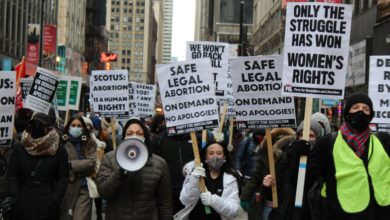On the evening of July 4, while many Utahns were celebrating with parades and fireworks, around 400 people gathered at the Utah State Capitol to protest the overturning of Roe v. Wade. In the days since the Supreme Court announced its ruling, Salt Lake City has seen sustained multiple demonstrations measuring in the hundreds to thousands of participants.
Utah is one of thirteen states that had a “trigger law” in place that banned abortions virtually immediately following the repeal of Roe by the Supreme Court. Utah’s ban prohibits abortion except in cases of rape that have been reported to the police and are a danger to the mother’s life. This trigger law became effective only hours after the Supreme Court ruling was released banning all elective abortions from the point of fertilization.
The latest collection of abortion data available from the Utah Department of Health – Office of Vital Statistics from 2019 gives a glimpse of the reasons women have given for obtaining this healthcare in the state. The majority of abortions that occur in Utah — 65 percent — are done because of socioeconomic reasons, and about half of those seeking an abortion already have children.
The sponsor of SB174, Utah’s trigger law, Dan McCay has already indicated that he thinks even those limited exceptions for abortion under the bill should be revisited. On the day the Supreme Court decision was released, he said, “There may need to be a limitation on how late into a pregnancy an abortion would be allowed if the mother’s health is jeopardized,” or whether there needs to be a clearer definition of “what counts as rape and incest” and if a case would need to be “fully adjudicated as rape.” This is all the more egregious considering that only 10 percent of reported rape cases are successfully prosecuted in Utah.
The July 4 event was organized by Utah Pro-Choice People. Speakers shared personal stories of their needs for abortion care and highlighted the impacts of this ruling on Black, Indigenous, poor women and the LGBTQ community. Speakers spoke to a broad range of issues tying abortion not only to the struggle for healthcare, but the struggle for life under a capitalist system. Milo, an environmental activist, said: “The overturning of Roe v. Wade is the beginning of a full-fledged attack on our human rights. When we live in a country where we already don’t have the right to healthcare, don’t have the right to housing or shelter, and don’t even have the right to clean water, the idea that there is even a further attempt to take away our human necessities should terrify you.”
Another speaker, Emma K., highlighted the failure of the Democrats to codify Roe into law, telling attendees that while they had 50 years to make Roe federal law, they instead used it as a method to force people to vote for them. Many speakers questioned the legitimacy of a court claiming to be pro-life while stripping Indigenous people of their right to self-determination and the upcoming decision surrounding the Indian Child Welfare Act, which protects Indigenous children from being removed from their parents and placed in non-indigenous homes, bringing back images of forced residential schools.
The July 4 event showed that many people in Utah are ready to fight to make abortion a right again, but also that the fight for abortion rights is connected to many other struggles





